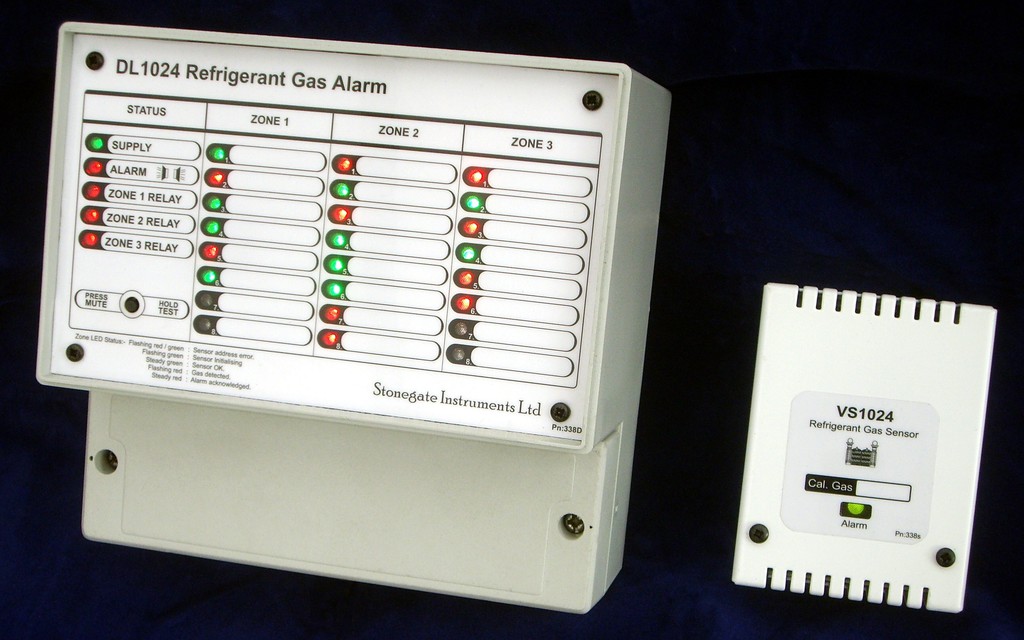
Kelly Rose
Editor

Kelly Rose
Editor
Refrigerants, while crucial to the efficient operation of modern day cold store systems, can pose a significant threat to the environment and an even greater hazard to the health and safety of workers if a leak occurs. Faced with such risks and increasingly stringent legislation, Shaun Evers, managing director of Stonegate Instruments, believes companies across a broad range of sectors are placing an increased focus on reducing gas leaks to ensure the safety of their employees.
Although refrigerants are essential for keeping industrial refrigeration systems running, exposure can cause a severe danger to workers. Prolonged exposure can lead to symptoms such as irritation of the throat, eyes and skin, frostbite, and chemical burns, as well as more severe symptoms like lung and brain damage.
When working in cold storage or industrial refrigeration, staff must be aware of the dangers, as well as the precautions that must be taken against potential incidents. By far the most hazardous incident would be the accidental release of refrigerant gases, which can occur through equipment failure, improper maintenance, mechanical damage, or accidental release during refrigerant replenishment. However, given the fact that 60% of gas escapes before an employee notices, it cannot simply be left to staff to spot potentially dangerous leaks.
Progressively strict regulations placed on companies who use refrigerants are going some way to reducing leaks, but accidents are still common. In fact, the Carbon Trust has recorded an average annual leak rate of up to 20% in UK refrigeration systems, meaning store operators remain on the lookout for ways to safeguard their employee’s safety. One solution is the use high-tech gas detection systems.
Gas leak detection
A gas detection system can help ensure that leaks are quickly identified and repaired at the earliest opportunity. This not only minimises the risk to the health and safety of employees, but is also a legal requirement as part of the EU F-Gas Regulations.
The legislation states that any refrigeration system with 300kg or more of refrigerants must be fitted with a leak detector, with cold stores that have a charge of 3-30kg required to be tested for gas leaks once annually and those with a charge of 30kg or more needing to be tested twice a year.
Fitted gas detectors must have a sensitivity of 5g/year and should be checked after 25 hours of continuous use. They should also be calibrated with a 1000ppm gas to air mix.
While vital for powering cold storage and industrial refrigeration systems across a range of sectors, from food and drink to pharmaceuticals, refrigerants still carry a significant threat to the health and safety of workers and should be carefully monitored by businesses.
This necessity to monitor leaks is perhaps further emphasised by the fact that many cold stores in operation throughout the UK were designed and build over 20 years ago, meaning leaks are far more likely to occur.
Despite the danger of refrigerant gas leaks, the solution is quite simple, the use of a sophisticated gas detection system. With the installation of effective gas detection equipment, a business can not only limit the costs of leaks but also ensure the health of their workforce. And with a payback period of less than two years, installing technologies to monitor gas leaks in cold storage offers a simple solution for companies in any sector.



Unit 4
Wortley Moor Lane
Leeds
LS12 4HX
UNITED KINGDOM
0113 224 4440